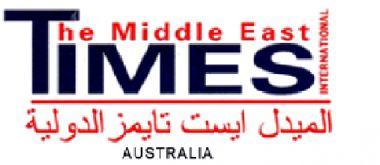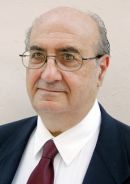| Editorial |
| EDITORIAL: Advocates for US action need to heed history lessons |
 |
EDITORIAL: Advocates for US action need to heed history lessons When US Secretary of State John Kerry meets Russia’s top diplomat, and possibly President Vladimir Putin, in Moscow he was trying to reverse a trend in which he has hailed a series of agreements with the Russians only for them to fall short, according to officials. Officials said Kerry is dangling, in front of the Kremlin, Russia’s long-sought requests for intelligence sharing and targeting assistance in return for Russia using its influence to end the fighting and start ushering Assad out of power. But Kerry will be wary about offering too much. The talks in Moscow are scheduled fewer than three weeks before an August ultimatum for diplomatic progress. All signs augur poorly for a breakthrough. The White House and Pentagon have resisted a greater US role. But as a dissent cable signed by 51 State Department officials illustrated last month, a sizeable part of the US diplomatic establishment believe a US military response is necessary to resolve the Syrian conflict. The idea of the US saving the Middle East from itself appeals to liberal hawks and neoconservatives alike. Unfortunately, when that notion has carried the day, regional security and stability have worsened. If Moscow saw fit to intervene on account of Washington’s covert support for the rebels, it is only logical that it would retaliate even more strongly in the event of overt support. Even in the unfathomable event that Russia were to abandon Syria, direct US military action would cause Iran and Hezbollah, the Assad government’s closest allies, to intensify their support. This would dim prospects for further improvement in US-Iran relations. Perhaps the interventionists believe that American military action would force Mr. Assad to the peace table. That prospect is equally implausible. The biggest problem with the arguments for intervention — even calibrated airstrikes — is that it would lead to boots on the ground. The signatories of the memo do not seem to appreciate that a US president has limited resources to fulfill global strategic commitments like countering China in the Pacific, strengthening NATO and keeping nuclear weapons out of Iran’s hands. The memo also intimates that American restraint in Syria puts US credibility on the line. This, too, is a stretch. American restraint has not undermined the anti-Islamic State coalition, and is unlikely to do so. If anything, that coalition has strengthened over the past three years. American resources are better spent on sustaining a stricken population and regional governments’ needs while nurturing a political process on Syria than on conducting futile military assaults. Editor in Chief |
 |
 |
 |
|
|
|||||||||
|
|||||||||
















